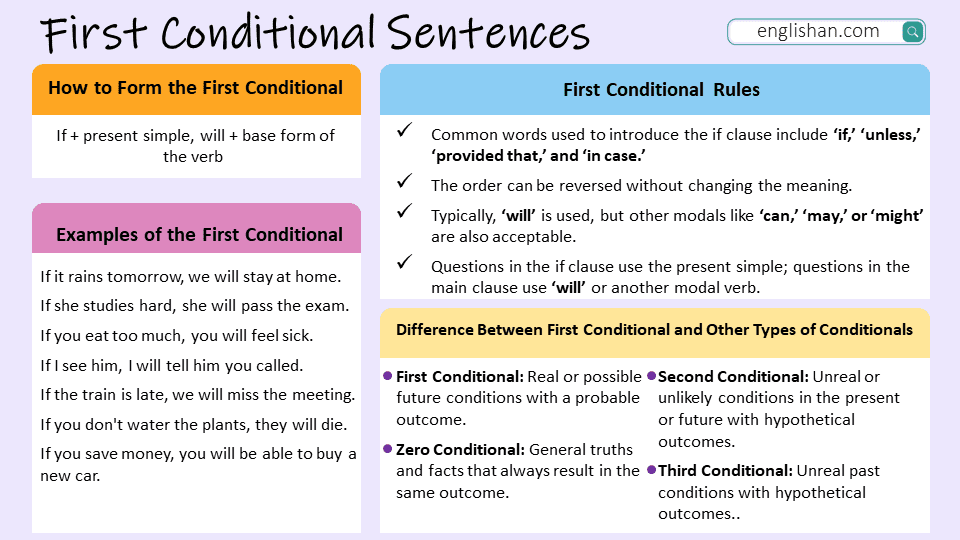In English grammar, first conditional sentences are used to talk about possible future events or situations. These sentences usually consist of two clauses: the “if” clause (the condition) and the main clause (the result). The first conditional is used when the result of the condition is likely to happen in the future. It is formed using the present simple in the “if” clause and the future simple in the main clause.
First conditional sentences are commonly used in everyday conversations, as they allow us to express our predictions and expectations about the future. By understanding how to construct and use first conditional sentences, you can effectively communicate your thoughts and ideas about potential outcomes.
Example of First Conditional Sentences
1. If it rains tomorrow, I will bring an umbrella.
2. If you study hard, you will pass the exam.
3. If she calls me, I will answer the phone.
4. If we leave now, we will arrive on time.
5. If they don’t hurry, they will miss the bus.
These examples illustrate how the first conditional is structured, with the “if” clause setting up the condition and the main clause providing the likely result. By using this form of sentence construction, you can convey your expectations and make plans based on potential future events.
It’s important to remember that first conditional sentences express potential outcomes, not certainties. While the result is likely to happen if the condition is met, there is always a possibility that things may not unfold as predicted. By using first conditional sentences, you can discuss future possibilities and make informed decisions based on your expectations.
In conclusion, first conditional sentences play a crucial role in expressing future possibilities and outcomes. By mastering this grammatical structure, you can effectively communicate your predictions and expectations about potential events. Practice using first conditional sentences in your conversations to improve your English language skills and convey your thoughts about the future with confidence.
